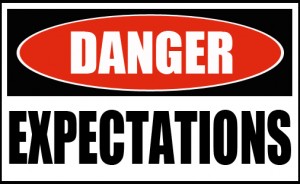John Stuart Mill’s “On Liberty” touched on salient points of contention following the Enlightenment Period, specifically on “the nature and limit of the power which can be legitimately exercised by society” ((On Liberty, 1859)). One can interpret this as how much restriction these leaders should rule with, and with how these rulers should go about administering these restrictions.
Mill also references the ‘Tyranny of the Majority’ as the source of these problems as well. On top of that, Mill also mentions that these rulers won’t just act through political authority, which “leaves fewer means for escape, penetrating much more deeply into the details of life, and enslaving the soul itself” ((On Liberty, 1859)). Mill means to explicate the notion that this political rule does not stop at general regulation such as taxes, but has a psychological effect on the masses as well. To clarify, rulers had rather poor relationships with the public in mid-1850s Europe. Mill compared rulers to vultures when he said that those under rule had a “perpetual attitude of defence against his beak and claws” ((On Liberty, 1859)), and the oppressed masses their prey. Mill is trying to give us the perspective that these commoners had little to no communication with their ruler, which not only portrays a bad image of the ruler, but also puts the public at a disadvantage in expressing their needs and interests to those who can influence leaders and rulers. Mill then poses the question of where the limits of power should be placed in regards to rulers and control over their people. Mill’s suggestions allude to the idea that these should be concrete and unmoving standards.
Having previously read pieces of Machiavelli’s “The Prince” ((The Prince, 1532)) and agreeing with many of his concepts, I disagree with Mill’s finite standards. Obviously Machiavelli suggests a much more dynamic system, where regulations and liberties are dependent on present circumstances. Machiavelli also prescribes a bit of a more lax-but-distanced relationship between ruler and subject, which I find paramount in a monarchy. You don’t want the people you rule to revolt against you, so you at least have to be somewhat receptive of their plights and opinions. We see this fluctuation of activity in the European Union, where member states submit a monetary allotment for approval.
I believe liberties and regulations should be ever-changing; with fluctuation it is difficult to get stuck with limits that may not fit the needs of your state or your subjects should a sudden crisis occur. More importantly this will not set any unrealistic standards for the future of your state, thus allowing you to eliminate any expectations or speculation the public may have of the future governance of their state (another important facet of “The Prince”). I do not believe that expectations are a truly horrible thing, but in society in regards to government large expectations can sometimes lead to unrest and/or revolt if too many things are kept static.
How would you rule? Do you think static limits and liberties are more advantageous than dynamic regulations? Why?

